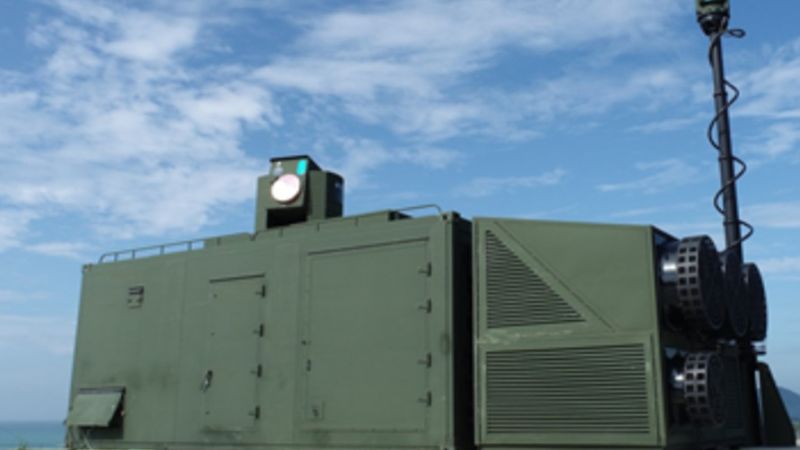South Korea is beginning the mass production of a low-cost laser weapon that has successfully shot down small drones during testing, the country’s key arms agency said Thursday.
The laser weapon, called Block-I, “can precisely strike small unmanned aerial vehicles and multicopters at close range,” a news release from South Korea’s Defense Acquisition Program Administration (DAPA) said.
The release did not give a cost for the weapon, but said each shot fired would only cost about $1.50.
Imagery supplied by the agency appears to show a weapon around the size of a shipping container with a laser mounted on top and what appears to be a radar or tracking device mounted on one side of the platform.



When discussing deterrents against drone swarms the cost per “round” is the correct metric…
The cost per round is a lot more than just power generation when talking about lasers.
The wear on tear on lasers is a lot different than other systems and when the case is being made for their cost effectiveness they need to be factored in, instead of the highly misleading figures that only prices out electricity.
What kind of wear are we talking about? Some of the laser types I can think of don’t seem like they would need to wear out.
it’s not just the laser…
It’s the optics, it’s the cooling, it’s the physical mechanics it’s built on, the laser may be pushed well over it’s designed target range causing it to breakdown further.
The power supply for the laser, the circuitry for control (to some degree) and most importantly, where ever you source that energy from. Presumably a super cap bank and a generator? Maybe batteries? Who knows.
Worked at a spring factory, a laser manufacturer bought copper springs by the boat load because they’d melt I guess
i would assume they used them in a heat sinking deal. Presumably to apply pressure to a diode package into a heatsink, while sinking heat, or something along those lines. Could be galvanic corrosion reasons also i guess.
The mount would wear out, that’s true. As would the cooling pump, although I don’t see why you wouldn’t just use a cheap one off the shelf. The rest doesn’t theoretically need to wear if you make sure you have enough thermal allowances.
yeah pretty much, optics would likely be pretty temperamental at those power levels, but maybe they aren’t using any? Idk.
If a bug lands on one while it fires would basically melt the optics instantly. I would imagine.
Oh yeah, there’s that. Ideally you’d want semi-disposable covers of some kind.
How powerful is this thing, anyway? I’m assuming it’s more of an “overheat” than “vapourise” situation.
if it’s powerful enough to yeet drones out of the sky, and hasn’t been built before, we’re talking KW range power rating, enough to presumably vaporize parts of the drone instantly, or near instantaneously. So presumably dirty optics would be a big problem. We already have problems with optics on flashlights getting “dirty” from similar issues.
I mean, sure that’s fair, and the figures could be updated to include that. But the order of magnitude difference between this and explosive ammunition is 10,000x or more. Unless these are single fire, I’m not convinced it changes the calculus
Even in the very long term, loss of equipment to enemy fire is non-negligible during active combat, so you need to tack on the purchase cost in some manner.
In the shorter term you have to buy a 30 million dollar laser system, even if you’ll eventually make it back.